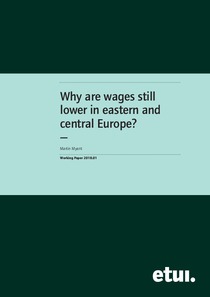Why are wages still lower in eastern and central Europe?
"This new working paper explores why there is a persistent wage gap between western Europe and the new EU Member States of eastern and central Europe. Why is it still the case that after 27 years of transition from state socialism and 14 years of EU membership the closing of the gap in living s...
| Main Author: | |
|---|---|
| Institution: | ETUI-European Trade Union Institute |
| Format: | TEXT |
| Language: | English |
| Published: |
Brussels
2018
ETUI |
| Subjects: | |
| Online Access: | https://www.labourline.org/KENTIKA-19395731124911139139-Why-are-wages-still-lower-in-e.htm |
| Summary: | "This new working paper explores why there is a persistent wage gap between western Europe and the new EU Member States of eastern and central Europe. Why is it still the case that after 27 years of transition from state socialism and 14 years of EU membership the closing of the gap in living standards between western Europe and eastern and central Europe remains as elusive as ever, with little likelihood of any meaningful convergence happening any time soon.
How has this situation been allowed to happen? What role have economic policies, particularly the dependence on low wages to attract inward foreign direct investment, played. And why do wages in those countries remain significantly lower than in western Europe. These are just some of the questions this timely publication addresses." |
|---|---|
| Physical Description: | 36 p. Digital Paper |

